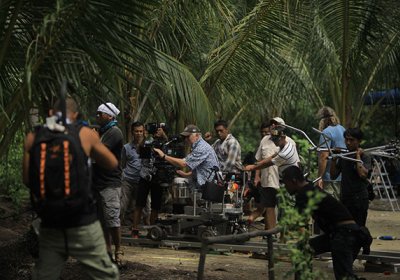A by-election in the Single Member Constituency of Bukit Batok, which has about 25,000 eligible voters, is needed following the resignation of the People's Action Party (PAP) MP David Ong on March 14.
The PAP has ruled Singapore since 1959, when it was still a British colony. Its rule has relied on a combination of independent Singapore’s affluence in comparison with its neighbours and political repression.
Ong won 72% of the vote in the September’s general elections, defeating the Singapore Democratic Party’s (SDP) Sadasivam Veriyah (26.4%) and independent Samir Salim Neji (0.6%).
1089
“Nations cannot realise the full promise of independence until they fully protect the rights of their people,” Barrack Obama, president of the United States, said on tour to Kenya and Ethiopia last year. This is ironic, because on that trip he failed to criticise human rights abuses by the Ethiopian government, which he hailed as “democratically elected”.
Ethiopians are very familiar with the government’s attempts to oppress any opposition. The Tigrayan People’s Liberation Front (TPLF) government took power in 1991. All opponents are persecuted as terrorist collaborators.
 PostCapitalism: A Guide To Our Future
By Paul Mason
Allen Lane, 2015, 340 pp., $49.99 (hb)
Paul Mason is a well-known British economics journalist, who made a name for himself with commentary on the BBC and more lately on Channel 4. PostCapitalism has created a big splash in Britain, where it has been widely reviewed and debated.
PostCapitalism: A Guide To Our Future
By Paul Mason
Allen Lane, 2015, 340 pp., $49.99 (hb)
Paul Mason is a well-known British economics journalist, who made a name for himself with commentary on the BBC and more lately on Channel 4. PostCapitalism has created a big splash in Britain, where it has been widely reviewed and debated.
 Teachers protest outside the front of the Chicago Public Schools headquarters.
Chicago teachers staged a one-day strike on April 1 in a bid to get lawmakers to adequately fund education and other programs in the United States' third-largest school district.
Teachers protest outside the front of the Chicago Public Schools headquarters.
Chicago teachers staged a one-day strike on April 1 in a bid to get lawmakers to adequately fund education and other programs in the United States' third-largest school district.
Where To Invade Next
Written & directed by Michael Moore
Michael Moore has made another poignant, funny and politically sharp movie.
In spite of the title, it has little to do with US foreign policy. In Where to Invade Next, the documentary filmmaker behind Fahrenheit 9/11 and Bowling for Columbine goes after social problems that continue to plague the US, like homelessness and lack of health care — and shows that the US could learn a lot from the rest of the world.
Ian Angus is a Canadian ecosocialist activist and author. The editor of Climateandcapitalism.com, Angus is also the co-author of Too Many People? Population, Immigration, and the Environmental Crisis with former Green Left Weekly editor Simon Butler (Haymarket, 2011).
Democratic presidential candidate Bernie Sanders scored resounding caucus victories in Alaska, Hawaii, Idaho, Utah and Washington in recent days, TeleSUR English said on March 30. Recent polls show the self-proclaimed socialist has gained significant ground on Democrat establishment favourite Hillary Clinton, who pundits expected to have the nomination all but sewn up by now.
A series of suicide bombings in Brussels on March 22 killed 35 people, including 3 suicide bombers. Less than a week later, on March 27, a similar attack in Lahore, Pakistan, killed more than twice as many people — at least 75.
 At Hillary Clinton's urging, and with American logistical support, NATO launched 9700 "strike sorties" against Libya of which more than a third were aimed at civilian targets.
At Hillary Clinton's urging, and with American logistical support, NATO launched 9700 "strike sorties" against Libya of which more than a third were aimed at civilian targets.
On March 23 Prime Minister Malcolm Turnbull announced a new Clean Energy Innovation Fund (CEIF) with $1 billion in funding over ten years. The Prime Minister's media release explicitly mentioned that it could be used to fund projects such as a “large scale solar facility with storage in Port Augusta”.
That the Australian government can find $6 million to fund a film aimed at convincing asylum seekers to not come to Australia and yet cut more than $50 million from Screen Australia speaks volumes about its priorities.
In 2008, the then-Minister for Aboriginal Affairs and Reconciliation Jay Weatherill announced a review of the South Australian Aboriginal Heritage Act 1988.
After initial intensive activity there was a long period of inactivity. Then, suddenly last month, with little notice or consultation, draft legislation to amend the Aboriginal Heritage Act was introduced into state parliament. On March 22, having passed through the Legislative Council, the House of Assembly agreed to the bill without any amendment.
- Page 1
- Next page








